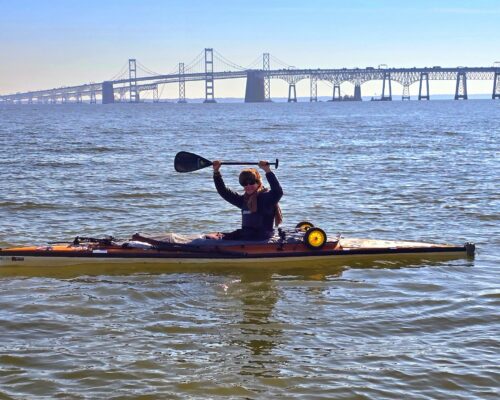A mostly dry past couple of weeks has led to drought conditions in Maryland and Virginia and has led to a rare fishing closure in part of Virginia and Maryland. One Virginia town on the Bay has even banned lighting off fireworks because it’s so dry.
According to the federal government’s U.S. Drought Monitor, 90 percent of the state of Virginia has been in a moderate drought, with a small portion in a severe drought. And 60 percent of Maryland is in a moderate drought, with the rest of the state classified as “abnormally dry”. Baltimore’s 1.40 inches of precipitation in June is only 35 percent of the normal amount.
In a surprising move, Cape Charles, Virginia, has banned all fireworks except professional displays for the duration of the week. The town made the decision “due to our extremely dry situation brought on by the current drought conditions… which could cause or contribute to the spread of fires in the Cape Charles area.”
Fireworks are banned from June 28 until July 9. The town says that violating the order may be “deemed a Class 1 misdemeanor.” The town says it’s a matter of public safety. New Kent County, Virginia, which sits in the York and James riversheds, is under a burn ban.
A few storms have passed through Maryland and Virginia in recent days, but the National Weather Service Middle Atlantic River Forecast Center says stream flows are still below average.
Shenandoah National Park, which has 90 streams and minor tributaries feeding into the large Shenandoah, Rappahannock and James rivers, currently has extremely low stream flows throughout the park, including some river sections that are completely dry.
The national park announced all of its streams and rivers are closed to fishing as a result. “Despite some rain on Wednesday, June 26, river flows remain low and are expected to continue dropping with continued hot, dry weather.”
There has also been noticeably hotter weather in the Bay region so far this summer, which has driven water temperatures higher. According to Climate Central, June 2024 was the fifth hottest June in Baltimore going all the way back to 1871.
Low water flows and high temperatures create stressful conditions for fish, Shenandoah National Park says. Fishing during these conditions could harm native brook trout populations, which are already low across the park.
The fishing closure applies to all streams within park boundaries, both catch-and-release waters and those open to harvest. A closure like this is rare, but not unheard of. Fishing was closed during drought conditions in both 2021 and 2023. Shenandoah National Park says stream flows are expected to remain low until “significant precipitation” falls across the area.
The National Weather Service says localized downpours are predicted later this week for much of the Bay region, lingering into the weekend, but the scattered coverage of these storms aren’t expected to improve the drought conditions much.




